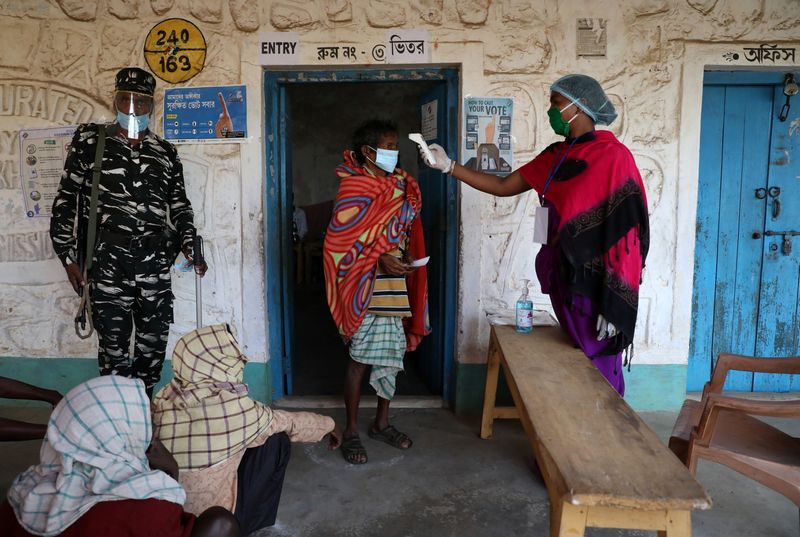By Subrata Nagchoudhury and Zarir Hussain
KOLKATA, India (Reuters) - Voters in India's Assam and West Bengal cast their ballots on Saturday in elections that will indicate how Indian Prime Minister Narendra Modi's support is holding up after a year of the coronavirus pandemic and months of protests against his farm reforms.
Modi and Home Minister Amit Shah campaigned energetically for their Bharatiya Janata Party (BJP) in West Bengal, encouraging defections from the Trinamool Congress (TMC) party, whose firebrand leader Mamata Banerjee has been chief minister since 2011.
India's fourth most populous state, with 90 million people, was for decades a bastion of communism, and registered a voter turnout of nearly 80% in Saturday's first phase of voting.
Politicians on the campaign trail often showed scant regard for social distancing, but as voters queued patiently at polling centres, security personnel and election workers handed out masks, hand sanitisers and gloves.
Modi was re-elected for a second five-year term in 2019, and his BJP is pushing to extend its influence beyond the 12 out of 28 states where it rules alone, and several others where it is part of a ruling alliance - not least because this would help it to control the upper house of the federal parliament.
It has never won power in West Bengal, and to do well in the state would send a formidable national signal.
"This election in Bengal is important because the BJP for the first time has emerged as a major contender," said Amal Mukhopadhyay, a former professor of political science at Kolkata's Presidency College.
In neighbouring Assam, where a BJP-led alliance is seeking a second term, turnout was over 76% after a day that had begun with voters queuing before the polls opened at 7 a.m.
Voting in West Bengal takes place in eight phases, ending on April 29, and the votes will be counted on May 2.

Assam's third and final phase of voting is on April 6.